
Israel commits war crimes in the form of collective punishment, disproportionate force, targeting of civilians, and other violations of the Geneva Conventions and international law. Despite these repeated war crimes and other human rights violations, the United States government continues to give Israel economic, military, and diplomatic support in violation of its own laws.
Israel repeatedly violates the Geneva Conventions by:
Targeting, killing, and collectively punishing non-combatant men, women and children
Moving its own population into an occupied zone
Imposing unnecessary curfews and closures
Exercising disproportionate use of force
Israel defies international law and hundreds of U.N. resolutions by:
Refusing to end over 40 years of military occupation
Expanding and adding Israeli settlements
Building the Apartheid Wall to take over Palestinian land and water resources
Denying the right of return for millions of Palestinian refugees
DEFINITION OF "WAR CRIME"
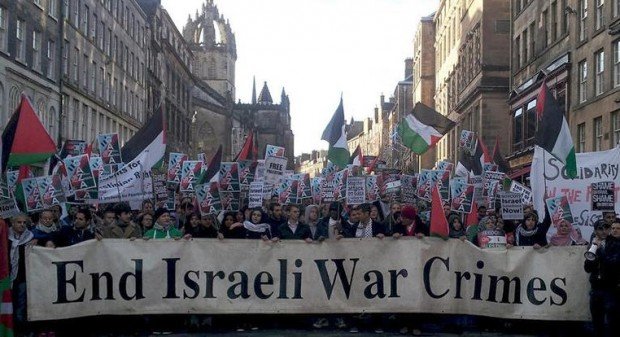
A war crime is defined as a grave violation of the Geneva Conventions or international humanitarian law. Both Israel and the United States are signatories to the Geneva Conventions. Under our Constitution, ratification of a treaty, such as the Geneva Conventions, makes that treaty binding U.S. law. In other words, a treaty becomes, in effect, U.S. law that our government is duty bound to uphold.
Two basic principles underlie the definition of a war crime. One is the principle of distinction, and the other is the principle of proportionality. The principle of distinction means that armed forces must distinguish between civilian populations or targets and military forces or targets, and they are prohibited from deliberately targeting civilians. The principle of proportionality means that the armed forces of a country cannot attack a military target in a way that would result in the loss of civilian life or property disproportionate to the military advantage to be gained.
COLLECTIVE PUNISHMENT
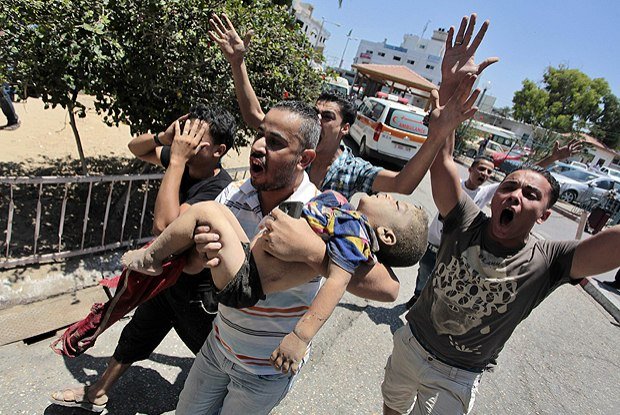
Out of these principles flows the crime of collective punishment, which is defined as reprisals directed at civilians. An example is punishment meted out against civilians for the resistance activities of insurgents, such as the infamous Nazi retributions against civilians for acts of the Resistance in France, Italy, and other countries that often involved the wholesale slaughter of towns. The prohibition against collective punishment is spelled out in Article 33 of the Fourth Geneva Convention. It reads, “No protected person [that is, a civilian] may be punished for an offense he or she has not personally committed. Collective penalties and likewise all measures of intimidation or of terrorism are prohibited. . . . Reprisals against protected persons and their property are prohibited.”
Our own military has prosecuted soldiers who took part in or led acts of collective punishment. Lt. William Calley, who led the U.S. Army’s massacre of civilians in the South Vietnamese village of My Lai during the Vietnam War, was charged with premeditated murder and court-martialed for taking reprisals against the village after his unit came under attack from nearby insurgents. Calley’s unit murdered hundreds of women, elderly men, children, and infants.
ISRAEL’S MILITARY OFFENSIVE AGAINST GAZA
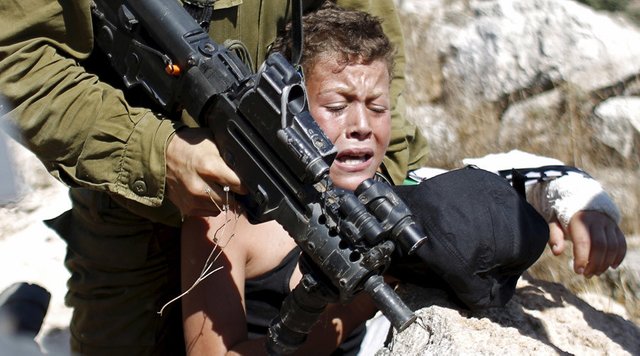
During Operation Cast Lead, Israel’s military offensive against Gaza in 2008-9, and again during Operation Protective Edge in 2014, Israel violated both the principles of distinction and of proportionality. About 1,400 Palestinians were killed during Operation Cast Lead, and 80 percent of those were civilians, according to UN figures. About 300 were children. In contrast, 13 Israelis were killed, including 3 civilians. Four of the Israeli soldiers were killed by friendly fire. During Operation Protective Edge, more than 2,100 Palestinians were killed, including more than 500 children. UN, Gaza health officials, and human rights organizations estimated that up to 75 percent of those killed were civilians. About 66 Israeli soldiers were killed, along with six civilians, including one child.
During Operation Cast Lead, Israeli forces attacked hospitals, mosques, a poultry plant, a flour mill, Gaza’s infrastructure, police stations, a prison, residential housing, ambulances, and other civilian targets, according to a United Nations (UN) investigation. The Israeli Defense Forces (IDF) dropped bombs and fired rockets, tank, artillery and mortar shells, and white phosphorus against a virtually defenseless population, only a tiny percentage of which had fired primitive, home-made rockets at Israel. In carrying out its attack the IDF used drones, advanced jet fighters, helicopter gunships, tanks, gunboats, and other sophisticated weaponry against a population that lacked an army, navy, or air force. The IDF used white phosphorus, an incendiary device that spreads out over a wide area and can cause severe burns, in one of the world’s most densely populated regions. This is further evidence that the IDF did not attempt to protect the civilian population.
FINDINGS OF THE UN MISSION ON THE GAZA CONFLICT
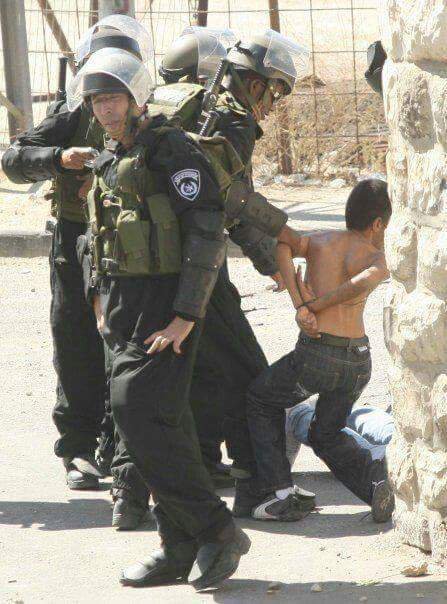
The findings of the UN Fact Finding Mission on the Gaza Conflict concluded that the IDF’s military offensive against Gaza, known as Operation Cast Lead, “was a deliberately disproportionate attack designed to punish, humiliate and terrorize a civilian population, radically diminish its local economic capacity both to work and to provide for itself, and to force upon it an ever increasing sense of dependency and vulnerability.” The ratio of deaths during Operation Cast Lead, 100 Palestinians for every 1 Israeli, is evidence of the disproportionality of the attack.
The Israeli government and its supporters have made numerous efforts to discredit the UN’s findings, but Israel’s counter-claims fail the credibility test. Israel attacked a mosque during evening prayers, knowing that the mosque would be crowded with worshippers. Israel claimed that weapons were being stored in the mosque, but even if true, Israel failed to protect civilians from disproportionate attacks since the mosque could have been attacked when civilians were unlikely to be present. As a result of the attack, 15 civilians were killed and more than 40 wounded.
Both the UN Report and Amnesty International found evidence that Israeli soldiers used Palestinian civilians, including children, as human shields, and Israeli soldiers have testified that they did so. Perhaps the most damning evidence of collective punishment is the finding, substantiated by satellite photography, that the great majority of Palestinian housing was destroyed in the final days of the campaign, well after it was known that Israeli forces were dominant and were encountering little to no resistance. An Israeli tank commander told a documentary filmmaker that he was ordered to destroy an entire neighborhood in Gaza during Operation Cast Lead. The tank commander says he was ordered to fire regardless of whether his unit came under fire. “Every house gets a shell,” the tank commander says he was told.
The very first day of the IDF’s attack on Gaza on December 27, 2008, violated the principle of distinction, which holds that civilians or civilian targets cannot be deliberately attacked. But on that day the IDF bombed a police cadet graduation ceremony in Gaza City, killing 99 policemen. The IDF justified this attack with the claim that police were part of Hamas’s security forces and therefore legitimate targets. But the Geneva Conventions and international humanitarian law are clear that police are regarded as civilians. The IDF killed more than 230 Palestinian policemen during Operation Cast Lead.
The UN fact-finding mission stated, “It is clear from the evidence gathered by the Mission that the destruction of food supply installations, water sanitation systems, concrete factories and residential houses was the result of a deliberate and systematic policy by the Israeli armed forces. It was not carried out because those objects presented a military threat or opportunity, but to make the daily process of living, and dignified living, more difficult for the civilian population.” According to the report, “Israel, rather than fighting the Palestinian armed groups operating in Gaza in a targeted way, has chosen to punish the whole Gaza Strip and the population in it with economic, political and military sanctions” in violation of Article 33 of the Fourth Geneva Convention.
OPERATION PROTECTIVE EDGE
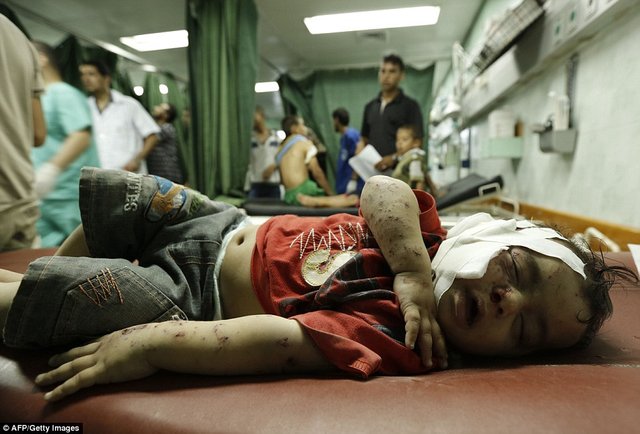
According to numerous news accounts, the International Red Cross, and human rights organizations, such as Amnesty International and Human Rights Watch, during Israel’s attack on Gaza in 2014, the IDF once again bombed hospitals at least 24 medical facilities, 203 mosques (73 of which were completely destroyed), 2 churches, rendered uninhabitable over 20,000 civilian homes, fired on ambulances, civilian infrastructure and UN shelters. The UN Human Rights Council once again found grounds for an investigation into possible war crimes. Among the more shocking scenes were the artillery shelling that killed four children playing soccer on a beach, the shelling of a UN school where people sought refuge, the shelling of a playground and a market, and the leveling of neighborhoods killing entire families were killed in their homes.
Israel’s disproportionate use of force shocked even U.S. military officials who told U.S. reporters that a Pentagon report showed Israel used 11 artillery battalions to fire 7,000 shells into the Shujaiya neighborhood of Gaza City during a 7-hour period. Retired Lt. General Robert Gard said that if the report was even “half-right, Israel’s response was absolutely disproportionate.”
IDF officials claimed that Hamas and other resistance forces used civilians as “human shields” by firing rockets into Israel from residential neighborhoods or near hospitals. In one instance the IDF said it had video evidence of a rocket being fired from a hospital but the video identified a building that was not a hospital.The IDF said Israel had the right to defend itself. Yet under international law, as an occupying power that controls Gaza’s borders, air space, and coastal waters, Israel has an obligation to protect the civilian population. It cannot use the resistance activities of the occupied population as an excuse to attack civilians. Moreover, in the past, Israeli officials have said that any threat to blockade Israel, such as Egypt’s threat in 1967 to blockade the Strait of Tiran, was an act of aggression that gave Israel casus belli (just cause) to make war. Yet when Israel imposed a blockade on Gaza, beginning in 2007, Israel did not consider its blockade an act of aggression.
The period leading up to and during Operation Protective Edge was also notable for the open calls within Israel for genocide. Member of the Knesset Ayelet Shaked said “the entire Palestinian people is the enemy,” adding that in a war the destruction of the enemy is justified, “including its elderly and its women, its cities and its villages, its property and its infrastructure.” Article 3 (c) of the International Convention on Genocide makes incitement to genocide a punishable, criminal offense, but the government of Israel failed to open an investigation into whether Shaked violated the convention.
COLLECTIVE PUNISHMENT SINCE 1948
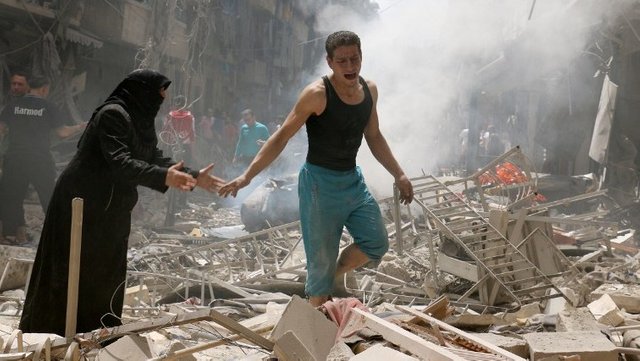
Collective punishment has been a consistent practice of the IDF, beginning in 1948, continuing through the early years of Israel’s existence, during the first and second Palestinian uprisings known as the intifadas in the late 1980s and early 2000s, and on to the very present. In 1953, a young Israeli lieutenant named Ariel Sharon, later to become Israel’s prime minister, led a raid on the Palestinian West Bank village of Qibya, killing 67 men, women, and children and destroying 56 houses. The raid was retaliation for a Palestinian guerrilla incursion into Israel. Sharon openly stated, “The orders were utterly clear. Qibya was to be an example to everyone.”
A DELIBERATE POLICY
The Israeli military has openly adopted the policy of collective punishment, declaring it a form of deterrence. During Israel’s 2006 attack on Lebanon, it targeted civilian neighborhoods and infrastructure, particularly the Dahiye neighborhood of the Lebanese capital, Beirut. More than 1,100 Lebanese were killed in this attack, the vast majority of them civilians. In a October 2008 interview with Israel’s leading newspaper Yedioth Ahronoth, Israeli Major General Gadi Eisenkott defined what he called the Dahiye Doctrine:
“What happened in the Dahiye Quarter of Beirut in 2006 will happen in every village from which shots are fired on Israel. We will use disproportionate force against it and we will cause immense damage and destruction. From our point of view these are not civilian villages but military bases. This is not a recommendation, this is the plan, and it has already been authorized.”
The refusal to distinguish between civilian and military targets was also articulated during the civil lawsuit brought against the Israeli government by the family of Rachel Corrie, the American solidarity activist who was murdered by an Israeli bulldozer driver. Giving testimony at the lawsuit, an Israeli officer directly contradicted the Geneva Conventions, declaring, “There are no civilians in a war zone.”
The Israeli organization, Breaking the Silence, made up of IDF soldiers and officers, stated in a recent report on Operation Cast Lead that the targeting of civilians was a deliberate policy and not the actions of a few bad soldiers. After taking testimony from IDF soldiers who participated in Operation Cast Lead, Breaking the Silence concluded:
“In the past few months, the IDF spokesperson has gone to great lengths to prove that if there were any moral problems with the war at all, they were merely on the level of the ‘delinquent soldier,’ rather than a widespread, systemic issue. The stories of this publication prove that we are not dealing with the failures of individual soldiers, and attest instead to failures in the application of values primarily on a systemic level. The IDF’s depiction of such phenomena as ‘rotten apple’ soldiers is a tactic used to place the responsibility solely on individual soldiers on the ground and to evade taking responsibility for the system’s serious value and command failures. The testimonies of the soldiers in this collection expose that the massive and unprecedented blow to the infrastructure and civilians of the Gaza strip were a direct result of IDF policy, and especially of the rules of engagement, and a cultivation of the notion among soldiers that the reality of war requires them to shoot and not to ask questions.”
By now it is clear that Israel’s policy of deliberately targeting civilians has continued because Israel has been able to act with impunity and without accountability. In the aftermath of Operation Protective Edge, the Israeli human rights organization B’Tselem announced that it would no longer turn over evidence of war crimes to Israeli authorities because “there is currently no official body in Israel capable of conducting independent investigations of suspected violations of international humanitarian law.”
THE GENEVA CONVENTIONS DO APPLY
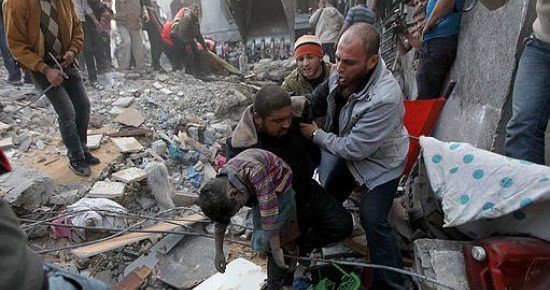
In adopting Article 33 of the Fourth Geneva Conventions following the end of World War II in 1945, the international community sought to outlaw collective punishment to ensure that crimes like those carried out by the Nazis never occurred again. Israeli and Palestinian civilians deserve that protection. The Israeli government is virtually alone among the world’s nations in arguing that the Geneva Conventions do not apply to the Palestinian people in the Occupied Territories. But their argument only reinforces their disdain for human rights and international humanitarian law. It is incumbent on the U.S. government to uphold the rule of law. In signing the Geneva Conventions and in passing the U.S. Foreign Assistance Act and the Arms Export Control Act, our government is legally bound to ensure that U.S. taxpayer dollars are not given to human rights violators.
SOURCES:
Amnesty International and war crimes in Gaza 2014:
Amnesty International – The ICC must immediately investigate war crimes by Israel and Hamas. Aug 1, 2014
U.S. military declaring Israeli bombardment of Shujaiya disproportionate.
http://america.aljazeera.com/articles/2014/8/26/israel-bombing-stunsusofficers.html
Israeli violations of national and international law (Report by Historians Against the war.
http://historiansagainstwar.org/resources/InternationalHumanRights.pdf
Israel committed war crimes, Human Rights Watch claims. Sept 11, 2014
http://www.haaretz.com/news/diplomacy-defense/1.615253
UN Human Rights Chief: Israel may be committing war crimes in Gaza:
http://www.haaretz.com/news/diplomacy-defense/.premium-1.606723
B’Tselem findings on Operation Protective Edge
http://www.btselem.org/accountability/20140905_failure_to_investigate
Red Cross condemns killings
http://www.ifrc.org/en/news-and-media/press-releases/middle-east-and-north-africa/palestine/red-cross-red-crescent-condemns-the-killing-of-two-volunteers-in-gaza-/
Home of Gaza police chief bombed
http://rt.com/news/172380-israel-air-strikes-gaza/
Washington Post reporter witnesses killing of four boys on beach
http://www.washingtonpost.com/blogs/worldviews/wp/2014/07/16/dispatch-israeli-strike-kills-four-children-at-a-gaza-beach/
Russell Tribunal findings
http://m.thenation.com/article/181858-israel-guilty-genocide-its-assault-gaza
Call for genocide
http://electronicintifada.net/blogs/ali-abunimah/israeli-lawmakers-call-genocide-palestinians-gets-thousands-facebook-likes
Not indicating that the content you copy/paste is not your original work could be seen as plagiarism.
Some tips to share content and add value:
Repeated plagiarized posts are considered spam. Spam is discouraged by the community, and may result in action from the cheetah bot.
Creative Commons: If you are posting content under a Creative Commons license, please attribute and link according to the specific license. If you are posting content under CC0 or Public Domain please consider noting that at the end of your post.
If you are actually the original author, please do reply to let us know!
Thank You!
Downvoting a post can decrease pending rewards and make it less visible. Common reasons:
Submit
I am the author, don't waste my 2 hours of working please.
Downvoting a post can decrease pending rewards and make it less visible. Common reasons:
Submit
Hi! I am a robot. I just upvoted you! I found similar content that readers might be interested in:
http://www.seamac.org/pdf/WHAT%20IS%20A%20WAR%20CRIME.pdf
Downvoting a post can decrease pending rewards and make it less visible. Common reasons:
Submit
We make a living by what we get, but we make a life by what we give.
- Winston Churchill
Downvoting a post can decrease pending rewards and make it less visible. Common reasons:
Submit